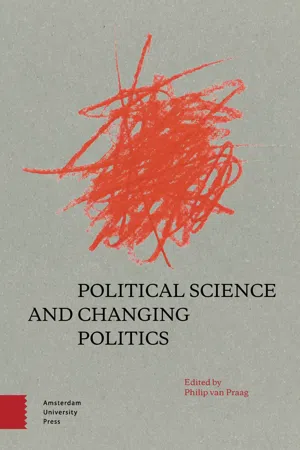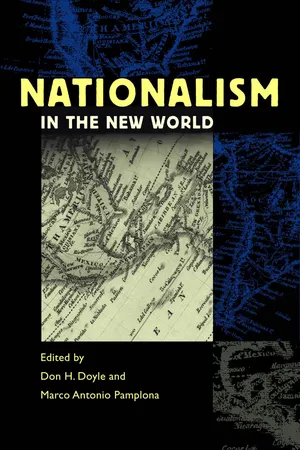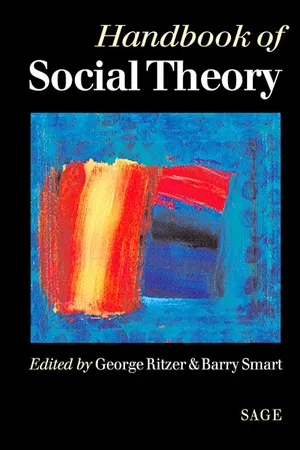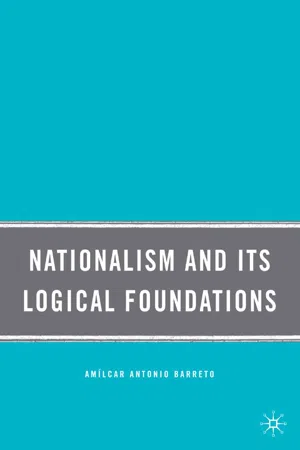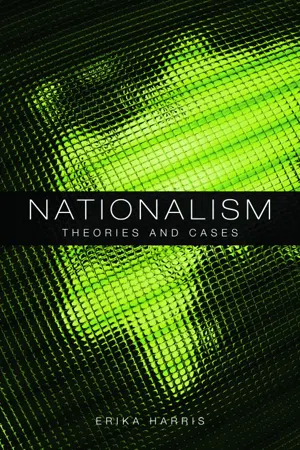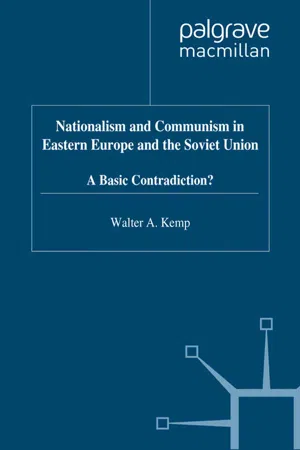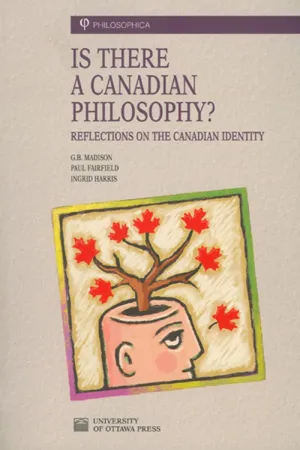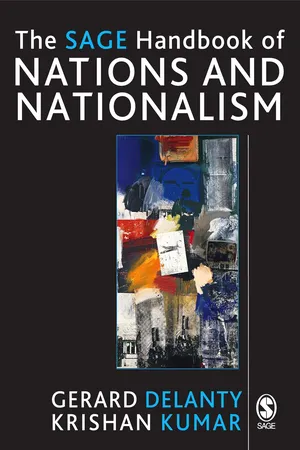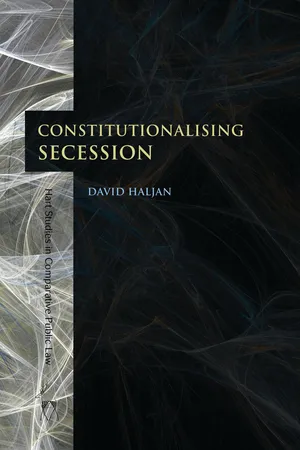Politics & International Relations
Nationalism
Nationalism is a political ideology centered on the belief in the nation as a fundamental unit of human social organization. It emphasizes the interests, culture, and identity of a particular nation, often promoting the idea of national self-determination and sovereignty. Nationalism can manifest in various forms, from cultural pride to political movements seeking independence or autonomy.
Written by Perlego with AI-assistance
Related key terms
1 of 5
10 Key excerpts on "Nationalism"
- eBook - PDF
- Philip van Praag(Author)
- 2017(Publication Date)
- Amsterdam University Press(Publisher)
3.4 Nationalism Nationalism is strongly related to the nation. There is even more discussion about the meaning of Nationalism than there is about that of the nation – if 64 LUUC BRANS, THERESA KUHN AND TOM VAN DER MEER that is possible. For example, in more psychological approaches, Nationalism is above all a state of individual citizens. In that case it is distinct from chauvinism and patriotism, for example. But even then it is not clear what exactly the dif ferences are between chauvinism, patriotism and national-ism. For some people, the dif ferences are typological (referring, for instance, to an identity derived from a civic or ethnic concept of the nation), while for others the dif ferences are rather a matter of degree (extreme or, on the contrary, moderate). In political science, the term Nationalism is often used to refer to social movements. Nationalism in this connection is sometimes described as the ef fort of a group to achieve national selfdetermination. That can happen, for instance, in separatist movements that want to create a state of their own, in nativist movements that turn against immigration and immigrants, or in Eurosceptic movements that do not want to transfer the sovereignty of the nation state to a supranational organisation. Nationalism is often presented as an emphatically modern phenomenon: the rise of Nationalism went hand in hand with the development of the mod-ern state. Today, theories of Nationalism take somewhat less far-reaching views. They pay more attention to the diversity of nationalist ideologies, and to dif ferent manifestations of these. Since the 1990s, some political theorists have suggested that a more liberal version of Nationalism is a necessary basis for a democratic society, social justice and/or individual autonomy. At the same time, other thinkers have defended a more post-national and cosmopolitan concept of political community. - eBook - PDF
- Don Doyle, Marco Pamplona(Authors)
- 2010(Publication Date)
- University of Georgia Press(Publisher)
Nationalism, then, is the use of the category “nation” to organize perceptions of basic human identities, grouping people together with fellow nationals and distinguishing them from members of other nations. It is influential as a way of helping to produce solidarity within national categories, as a way of deter-mining how specific groups should be treated (e.g., in terms of voting rights or visas and passports), and as a way of seeing the world as a whole. We see this representation in the different colored territories on globes and maps and in the organization of the United Nations. At the same time, clearly the boundaries of nations are both less fixed and more permeable than nationalists commonly recognize. Central to nationalist discourse is the idea that there should be a match be-tween a nation and a sovereign state; indeed, the nation (usually understood as Nationalism matters 27 prepolitical and always already there in historical terms) constitutes the ground of the legitimacy of the state. This is Kedourie’s point in the passage I quoted near the beginning of this chapter. Ernest Gellner likewise avers that national-ism is “a political principle, which holds that the political and the national unit should be congruent.” 25 Yet Nationalism is not merely a “political principle,” and its reproduction is a matter of banal practices (Olympic competitions, pace Michael Billig) and imaginative construction (museums, censuses, and habits of reading, pace Anderson) as well as political ideology. 26 Moreover, whether or not ethnicity explains Nationalism (or the origins of nations, pace Smith), com-mon language and culture facilitate national integration and identification. 27 And whether Nationalism was born first as a doctrine or as less articulated prac-tices or indeed born in Europe rather than, say, Spain’s American colonies is also subject to dispute. A variety of claims are made about what constitutes “proper” nations. - eBook - PDF
- George Ritzer, Barry Smart, George Ritzer, Barry Smart(Authors)
- 2001(Publication Date)
- SAGE Publications Ltd(Publisher)
13 Religion has played a role too, but this has mostly been marginal, exceptions being Ireland, Poland and Israel. Important as language is, the cultural component of Nationalism more or less always contains an identification with history in the sense of a myth of origins. Mention must also be Nationalism 475 made of the role of territory in defining the nation, relevant in the case of Serbia (Hooson, 1994). However, it is important to stress that the nation as a cultural community is more than an ethnos: Nationalism and ethnicity are not coeval. The nation is also a political community, a dimension which is closely related to the state, though is not reducible to the state. In this context the nation is closely identified with a particular territory, a legal order, a state, and even a governing elite. Nations can thus be defined in terms of the kind of community to which they give substance. Closely related to the political dimension of community there is the additional question of the role of ideology. Nationalism can be put alongside liberalism, conservatism and socialism as one of the great ideological doctrines of modern times. As a political ideology, national-ism is a doctrine codified by elites who sought to mobilize the masses or, in other cases, sought to provide a system of legitimation for a political order. Of particular importance in this regard is the pivotal role of intellectuals in the codification of Nationalism (Giesen, 1993). Arguably, the two most influential ideologies of modern Nationalism were those of Giuseppe Mazzini and Woodrow Wilson. Mazzini was the apostle of modern republican Nationalism and argued that nations of a certain size have a right to states of their own. In his conception the nation is essentially a territorially large cultural community which has a historical right to be realized in a sovereign state. - eBook - PDF
- A. Barreto(Author)
- 2009(Publication Date)
- Palgrave Macmillan(Publisher)
While Nationalism begins with ethnicity, it does not end there. Nationalists advocate the correspondence of cultural and polit- ical boundaries. 23 While its agenda is justified on an ethnic basis, ulti- mately, Nationalism is a political ideology. Nationalism is a phenomenon that emerged in the late eighteenth century. Therefore, this novel form of politicized ethnicity cannot be a primordial phenomenon. Patrick Geary’s 14 Nationalism and Its Logical Foundations work elucidated that ancient peoples indeed had specific political loy- alties. Nevertheless, our contemporary nationalist orientations were not direct derivatives of their counterparts from the Middle Ages or earlier epochs. 24 Nationalist ideologies posit that prince and pauper share a com- mon, albeit distant, ancestry. Yet in Medieval Europe, town and country- side were often inhabited by distinct peoples. 25 Nationalists borrow labels from the ancient past—labels we now assign to ethnic categories. But these labels have been applied in a discontinuous manner. 26 The people today who lovingly brandish these age-old labels are not descended, in most cases, from the ancient peoples who were described with the same term. Benedict Anderson’s famous tome Imagined Communities concurs that our contemporary political orientations favoring coethnics was not a feature of previous eras where leaders emphasized common religious ties linking sovereign and subject rather than a shared ancestral past. 27 Such popular political principles from the prenationalist era allowed Austrian Hapsburgs to rule over Catholic Spain, and a Dutch aristocrat, William of Orange, to reign over a Protestant British empire, and Turkish Sultans to govern Kurds and Arab Muslims. 28 Ironically, the power of religious convictions impeded Greek Nationalism. As late as the eighteenth century, most Balkan Christians centered their identities on a common Orthodox faith. - eBook - PDF
Nationalism
Theories and Cases
- Erika Harris(Author)
- 2009(Publication Date)
- EUP(Publisher)
The individual, the state, the legitimacy of the state and the identity of the political community, and thus the ability to pursue the interests of the people and legitimise the actions on their behalf all merge into the politics of the nation state. This political approach can also explain better the success or failure of nationalist movements seeking greater autonomy within Theories of Nations and Nationalism 59 the state or even the separation from the state and the unification with the neighbouring kin state – once the sentiment is translated into political action, Nationalism makes more sense in terms of its aspirations. 31 So, whether we are observing separation-seeking Nationalisms of the former Yugoslav republics, or an autonomy-seeking Hungarian minority in post-communist Europe, or the Palestinian struggle for the extrication from Israeli occupation, Nationalism is an action-orientated political movement seeking control of a territory. All of those movements will be discussed at greater length in the following chapters. The tools of the nationalist trade, however, are not always forward looking. Nairn spoke of Nationalism as being a ‘modern Janus’ – Janus was the Roman god with two faces, one looking forward and one back. The backward glances are looking into the past of the nation to seek joys of victories, recall pains of defeats and appeal to the wisdom of the people who have survived the past and must ‘gather strength’ for the struggle ahead. 32 This, of course, assumes that the story of the nation is a real one and that there is a past that can be tapped into in a constructive way for the task in hand. I don’t want to spend much time reminding the reader that the power of nationalist elites to spin a story is not limitless – it needs the audience to respond and to respond with a sense of recogni-tion and emotiveness which reinforces a sense of common destiny, and therefore a common future. - eBook - PDF
Nationalism and Communism in Eastern Europe and the Soviet Union
A Basic Contradiction
- W. Kemp(Author)
- 1999(Publication Date)
- Palgrave Macmillan(Publisher)
This is as applicable to our contemporary environ- ment as it was to the Communist one. As one writer put it, 'cultural homogenization has prepared the ground for Nationalism: the more similar people become, the greater the urge to be different'. 17 Therefore, as Vincent Cable notes, '"Globalisation" may be changing the nature of national politics, but national it remains.' 18 And herein lies the paradox. On the one hand, within the international system nations are losing their significance as the primary forum for eco- nomic and cultural life. But for that very reason people are reacting in a nationalistic way, for they feel a loss of identity. In many ways, the decline The Politics of Identity 213 of the nation, therefore, leads to a rise in Nationalism. As Tom Nairn explains: The 'global continuum' of homogeneity of multinational industrial and commercial culture is not, in fact, something which as such tends to diminish ethnic unrest or remove the temptations of self-rule politics ... [On the contrary] the fact that the globe has grown smaller, and now has really one market place and economic system for the first time, is surely more likely to exacerbate rather than to appease an awareness of being left out, resentful determination to catch up, and efforts to mobilize opinion accordingly - all the basic staples of nationalist and separatist action. 19 A CRISIS OF IDENTITY Nationalism, in the post-Communist context is fundamentally a question of identity. Edward Mortimer of the Financial Times sums up the appeal of Nationalism in the modern era when he writes: In this bewildering new world the nation-state is no longer the engine of modernization. Instead it has become the 'Jesus-rail' - the handle that a white-knuckled passenger clings onto shouting 'Jesus', as the car he is travelling in hurtles round a blind corner. - eBook - PDF
- G.B. Madison, Paul Fairfield, Ingrid Harris(Authors)
- 2000(Publication Date)
- University of Ottawa Press(Publisher)
According to the nationalist worldview, the human species is naturally divided into peoples each of which pos-sesses a collective right of self-determination. This right finds proper expression only in a nation-state in which a people may determine its own fate without subordination to other peoples. Failing this measure, peoples will forever be divided into dominant majorities and oppressed minorities, cultural winners and losers, the latter of whom are permanently ban-ished to the margins of political life and condemned to strug-gle for collective survival. In perhaps no nation in the world are issues of nationality, identity, and recognition more pressing at the current time than the one with which this volume is concerned. Political 90 Nationalism AND THE POLITICS OF IDENTITY observers might well turn some attention to the nation of Can-ada for the lessons that may be learned from its continuing efforts to cope with these issues. Identity politics has been rath-er the fashion in virtually every region and institution in this nation for a considerable period, the secessionist movement in Quebec being the most longstanding and familiar. Canadian governments in recent decades have been compelled to re-spond in one fashion or another to claims advanced by a grow-ing number of identity communities from Quebec nationalists (or, to use the current term, sovereigntists) to Aboriginals and other ethnic and religious minorities, and others. 3 In each instance the political vocabulary is the same: collective identity requires recognition by laws extending beyond the protection of individual rights to reflect the shared aspirations of a com-munity. In treating all persons alike, these groups assert, liberal universalism subverts particular identities by treating all per-sons as if they shared a homogeneous sense of selfhood, one that in fact merely reflects the majority culture. - eBook - PDF
The Nation and Nationalism in Europe
An Introduction
- Ireneusz Pawel Karolewski, Andrzej Marcin Suszycki(Authors)
- 2011(Publication Date)
- EUP(Publisher)
Here, we give a short review of the argument. Frequently, the point of departure for studies on this relationship is the widespread assumption about the erosion of national sovereignty, which entails the parting of the overlapping cultural and political spheres of the nation and the state. It is maintained that we are confronted with a reversion of the Gellnerian principle of Nationalism. The invalidation of the Gellnerian principle of integration between culture and political authority within the modern nation-state has significant consequences at the level of national identity and the politics of Nationalism. The issue is, however, a complex one, A Problem of Definition? 81 since new identities do not necessarily replace national identity or make Nationalism redundant. Therefore, as we argue in Chapter 7, the question rather pertains to the new complexity of regional-ism, Nationalism and European integration. It should deal with the semantic triangle of regionalism, Nationalism and European inte-gration as the concept of regionalism becomes semantically inter-twined with Nationalism and conceptually placed in the context of the EU. While the scholarly debate on regionalism oscillates between Nationalism and European integration, it seems to suffer from two fallacies. First, one can observe a tendency to ontolo-gise regionalism in the same way as other collective phenomena, of which Nationalism is another example. Second, approaches to regionalism tend to mimic the characteristics of the nation in the analysis of regions and regionalism. In this sense regions are treated as partial nations, or nations on a smaller scale. This mimicry in the study of regionalism arises from the application of categories from the study of Nationalism and nation-states to regionalism and regions. - eBook - PDF
- Gerard Delanty, Krishan Kumar, Gerard Delanty, Krishan Kumar(Authors)
- 2006(Publication Date)
- SAGE Publications Ltd(Publisher)
The second section deals with legitimate forms of nation-building. Here the central question is whether, and how, the state can create a unified body politic without demeaning or discri-minating against certain people within the community – people from a different ethnic or religious community, for example. The third section deals with the aspirations for collective self-determination that are felt by territorially concentrated minority national communities who are encapsulated within a state territory, those nations who do not have states. There has recently been a great deal of work on the ethics of secession, which primarily concerns the conditions under which a national group can justifiably secede to form its own state, although of course self-determination can occur within a state context. IS NATIONAL IDENTITY AN ACCEPTABLE FORM OF IDENTITY? One recent debate in the philosophical litera-ture on Nationalism centres on the question of whether any value should attach to nations, or to the sentiment that people sometimes feel that nations, or their nation, are an important source of value. In the immediate post-war period, national-ism was inextricably linked with the aggressive expansionism and racism of Nazi Germany. Nationalism was regarded almost universally in negative terms, which progressive people should eschew, where possible, in favour of more universalist, cosmopolitan sentiments. In cases where cosmopolitanism was not an option, the idea was that Nationalism was bad, but that patriotism, or fidelity to constitutional principles, was acceptable. Since that time, and especially following the demise of communism, the kind of Nationalism that has been defended has been principally minority Nationalism, which is justified in defending itself against the homogenizing expansionism of American capitalism and statist coercion. - eBook - PDF
- David Haljan(Author)
- 2014(Publication Date)
- Hart Publishing(Publisher)
Nationalism can thus acknowledge priority more as an active claim, rather than a concession. Nationalism holds that an individual’s entire context of significances and understand-ing is fashioned from a particular social and cultural crucible. Accordingly, the tensions and conflicts engendered in daily life with fellow nationals are in fact already accounted for in that cultural framework. The cohesion and consistency claimed by a nation from its members obtains at a more general level, one which allows for the possibility of conflicting interpretations and articulations. Some might suggest such terms as ‘open-textured’ or ‘thin, not thick’ concepts. 21 It would be an unrealistic assertion to attach a high degree of particularity to national commitments, especially given the very real exis-tence of courts, politically active cultural communities, purges, and cultural unity and cultural purity movements. If Nationalism demanded perfect homogeneity, these coun-ter-examples should not exist. So national solidarity does not necessarily require full consistency within its cultural framework, provided the differing articulations remain within the bounds of the general, open-textured commitments. As a result, there can be no real possibility of a conflict between national-cultural norms and individually held ones. If we accept the national objection, we ought to distinguish two types of priority claim, one applying to the boundary conditions establishing a nation, and the other applying within national borders to the particular instantiations of those concepts. 20 Yack, ‘Myth’ (n 10) 107 ff (criticising Habermas). 21 See, eg Tierney, National Pluralism (n 9) 64. See generally, J Rawls, Theory of Justice (Cambridge (Mass), Harvard UP, 1971); B Williams, Ethics and the Limits of Philosophy (Cambridge, (Mass), Harvard UP, 1985) 127 ff, 140 ff; and M Walzer, Thick and Thin: Moral Argument at Home and Abroad (Notre Dame, Notre Dame UP, 1994).
Index pages curate the most relevant extracts from our library of academic textbooks. They’ve been created using an in-house natural language model (NLM), each adding context and meaning to key research topics.
